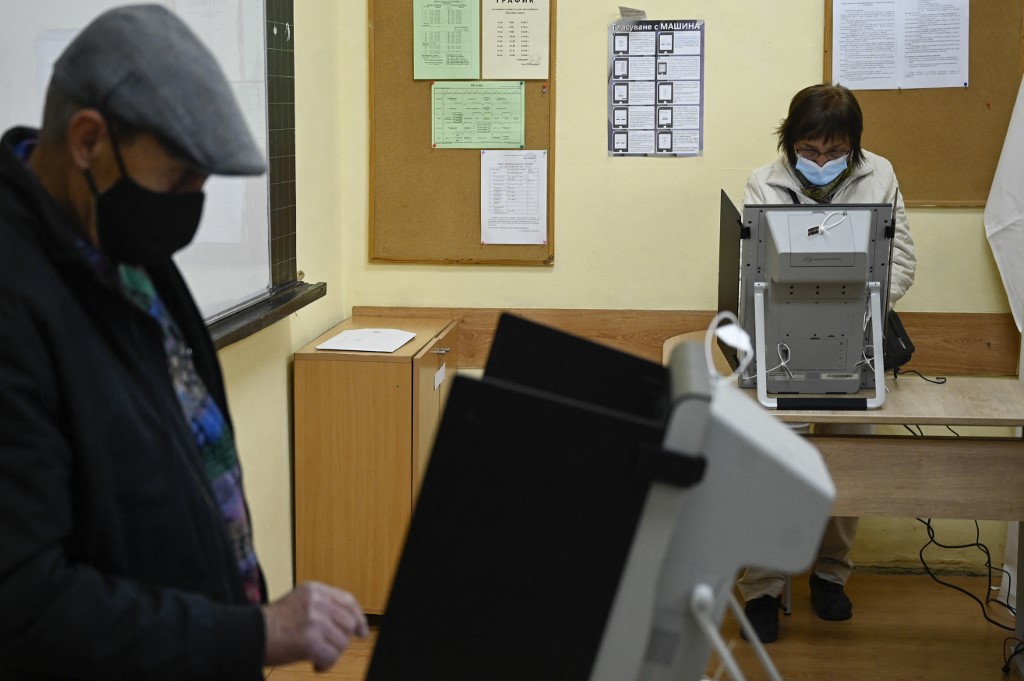The Turkish Foreign Ministry summoned the Bulgarian ambassador to Turkey on Thursday after the Bulgarian Foreign Ministry summoned the Turkish ambassador to Bulgaria over allegations that Turkey interfered in the neighboring country’s presidential and parliamentary elections and internal affairs, Turkey’s state-run Anadolu news agency reported.
Turkey’s Deputy Foreign Minister Faruk Kaymakçı summoned Hristov Tcholakov after Bulgaria summoned Turkish Ambassador Aylin Sekizkök and denied the claims that Bulgarian voters of Turkish ethnicity were directed by Turkish authorities to vote for an ethnic Turkish party in the November 14 presidential and parliamentary polls in Bulgaria, Anadolu said, citing diplomatic sources.
The ministry found it highly questionable that Turkey’s envoy in Sofia was summoned by the Bulgarian foreign ministry and accused of “baseless” claims.
An estimated 350,000 ethnic Turks with Bulgarian citizenship live in Turkey. Most moved there under pressure from the assimilationist policies of Todor Zhivkov’s communist regime in Bulgaria in the late 1980s.
Turkey also sent a diplomatic note saying that Bulgarian Turkish voters in Turkey should not be abused in Bulgarian domestic politics.
In May the Bulgarian parliament lifted voting restrictions on Bulgarian citizens living in non-EU countries, making the votes of Bulgarians in Turkey an important factor in the elections.
According to the election results, the pro-Turkish Movement for Rights and Freedoms (DPS) received more than 80,000 votes cast at 126 polling stations in Turkish cities, including Ankara, İstanbul, İzmir and Bursa. The DPS won more than 13 percent of the vote and 34 seats in the 240-seat Bulgarian parliament.
The party’s leader, Mustafa Karadayı, ran for the presidency, garnering 11.57 percent of the vote.
In Bulgaria the DPS has been tied to claims of corruption and oligarchs.
Delyan Peevski, an influential businessman, media mogul and lawmaker from the DPS, was sanctioned under the Magnitsky Act in 2021.

The DPS’s relations with Turkey were not previously rosy. In 2016 Ankara banned Peevski and former leader Ahmed Doğan from entering Turkey due to their pro-Russian positions.
That is until December 2020, when Turkish President Recep Tayyip Erdoğan sent a special congratulatory video message to the DPS national conference that was perceived by observers as a request for interference in the country’s domestic politics. It came at a time when Erdoğan lost his friend in Bulgaria, former Prime Minister Boyko Borisov, who often lobbied for him in Brussels but was voted out of office in 2021.
In June of this year Erdoğan received a delegation from the DPS, led by the current leader Karadayı. The delegation included Member of the European Parliament (MEP) Ilhan Kyuchuk. DPS has three MEPs, part of the European Parliament’s Renew Europe group.
DPS influence in Bulgaria
“Doğan was the first to realize that he had a media empire and control over the judiciary and he could rule (Bulgaria),” then-Prime Minister Borisov told the Mediapool.bg news website in 2014.
Doğan officially retired as DPS chairman in 2013. But he is still the party’s “honorary chairman” and remains one of the country’s most powerful political figures.
The media Borisov was referring to is that of Peevski, described as the country’s “undisputed media mogul.”
“Journalists (in Bulgaria) are often summoned and questioned by police about their work, while politicians and oligarchs maintain relations marked by corruption and conflicts of interest in the pro-government media. Delyan Peevski, the oligarch who was the most notorious embodiment of this aberrant state of affairs, has sold his media outlets but his influence over the media continues to be problematic,” Reporters Without Borders (RSF) says.



